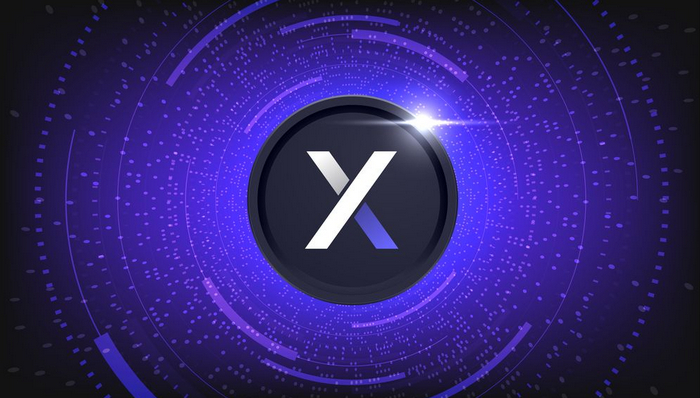-
 Bitcoin
Bitcoin $97,126.0652
2.56% -
 Ethereum
Ethereum $1,823.5318
2.64% -
 Tether USDt
Tether USDt $1.0001
0.02% -
 XRP
XRP $2.1318
0.63% -
 BNB
BNB $601.7237
0.50% -
 Solana
Solana $146.0494
1.59% -
 USDC
USDC $1.0000
0.00% -
 Dogecoin
Dogecoin $0.1711
2.10% -
 Cardano
Cardano $0.6674
1.85% -
 TRON
TRON $0.2465
0.71% -
 Sui
Sui $3.3274
2.03% -
 Chainlink
Chainlink $13.6318
1.28% -
 Avalanche
Avalanche $19.3593
-2.00% -
 UNUS SED LEO
UNUS SED LEO $8.6894
-0.25% -
 Stellar
Stellar $0.2587
0.83% -
 Shiba Inu
Shiba Inu $0.0...01276
1.70% -
 Toncoin
Toncoin $3.0106
-0.07% -
 Hedera
Hedera $0.1745
1.12% -
 Bitcoin Cash
Bitcoin Cash $364.4245
1.64% -
 Hyperliquid
Hyperliquid $21.0883
2.87% -
 Litecoin
Litecoin $89.2345
7.57% -
 Polkadot
Polkadot $3.9269
0.02% -
 Dai
Dai $1.0002
0.02% -
 Monero
Monero $285.3542
-0.32% -
 Bitget Token
Bitget Token $4.2801
-0.33% -
 Ethena USDe
Ethena USDe $1.0005
0.03% -
 Pi
Pi $0.5807
-0.15% -
 Pepe
Pepe $0.0...08114
3.32% -
 Bittensor
Bittensor $362.4362
-0.34% -
 OKB
OKB $51.0484
0.70%
how dydx coin trading works
dYdX, powered by its native DYDX token, facilitates decentralized derivatives trading with low fees, swift execution, ample market options, and a user-friendly interface, making it a sought-after platform for traders.
Nov 06, 2024 at 02:29 am

How dYdX Coin Trading Works
dYdX is a decentralized derivatives exchange that allows users to trade perpetual contracts, perpetual swaps, and spot tokens. The exchange is powered by the dYdX token (DYDX), which is used to pay for transaction fees, stake for rewards, and participate in governance.
To trade on dYdX, users must first create an account and deposit funds into their account. They can then use the exchange's interface to place orders and trade against other users. dYdX offers a variety of order types, including market orders, limit orders, and stop orders.
When a user places an order on dYdX, the order is sent to the exchange's matching engine. The matching engine finds other users who are willing to trade against the order and executes the trade. Trades are settled on the Ethereum blockchain, and users can withdraw their funds at any time.
dYdX also offers a number of features that make it a popular choice for traders. These features include:
- Low trading fees: dYdX charges some of the lowest trading fees in the industry. This makes it an attractive option for traders who are looking to save money on trading costs.
- Fast execution: dYdX's matching engine is one of the fastest in the industry. This means that traders can get their orders executed quickly and efficiently.
- A wide range of markets: dYdX offers a wide range of markets to trade on, including perpetual contracts, perpetual swaps, and spot tokens. This makes it a great option for traders who are looking to trade a variety of different assets.
- A user-friendly interface: dYdX's trading interface is user-friendly and easy to navigate. This makes it a great option for traders who are new to decentralized exchanges.
Steps on How to Trade dYdX Coins
Create an Account
- Go to the dYdX website and click on the "Sign Up" button.
- Enter your email address and create a password.
- Click on the "Create Account" button.
Deposit Funds
- Once you have created an account, you will need to deposit funds into your account.
- You can do this by clicking on the "Deposit" button and selecting a deposit method.
- dYdX supports a variety of deposit methods, including bank transfers, credit cards, and debit cards.
Place an Order
- Once you have deposited funds into your account, you can begin placing orders.
- To place an order, click on the "Trade" button and select the market you want to trade.
- Enter the order type, quantity, and price.
- Click on the "Place Order" button.
Manage Your Order
- Once you have placed an order, you can manage it by clicking on the "Orders" tab.
- You can view the status of your order, cancel your order, or edit your order.
Withdraw Funds
- Once you have completed your trades, you can withdraw your funds from your account.
- To withdraw funds, click on the "Withdraw" button and enter the amount you want to withdraw.
- Select a withdrawal method and click on the "Withdraw" button.
Disclaimer:info@kdj.com
The information provided is not trading advice. kdj.com does not assume any responsibility for any investments made based on the information provided in this article. Cryptocurrencies are highly volatile and it is highly recommended that you invest with caution after thorough research!
If you believe that the content used on this website infringes your copyright, please contact us immediately (info@kdj.com) and we will delete it promptly.
- The institutional acceptance of crypto around the world has accelerated significantly recently, developing hand in hand with better-defined regulation.
- 2025-05-07 23:35:13
- XRP Has Evolved Beyond Payments, Now Powering Finance, Gaming, NFTs, and More
- 2025-05-07 23:35:13
- XRP Overtakes Bitcoin in Hourly Futures Liquidations
- 2025-05-07 23:30:12
- Agglayer Launches Pessimistic Proofs to Mainnet, Sparking Integrations Across Multiple Protocols
- 2025-05-07 23:30:12
- Binance Coin (BNB) Price Will Soar to $1,275 by the End of 2025, Says Standard Chartered
- 2025-05-07 23:25:12
- Pi (PI) Price Prediction: Will the Pi Coin Price Continue Climbing or Face Further Declines?
- 2025-05-07 23:25:12
Related knowledge

What is Ethereum’s Slashing mechanism and how to punish malicious behavior?
Feb 20,2025 at 03:08am
Key PointsOverview of slashingDifferent types of slashing in EthereumIncentives and consequences of slashingIdentifying and reporting slashed validatorsOngoing discussions and potential improvementsEthereum's Slashing Mechanism: Punishing Malicious BehaviorEthereum's slashing mechanism is an essential tool for ensuring network security and punishing mal...

What is the verifier node of Ethereum and how to become a verifier?
Feb 19,2025 at 06:00pm
The Verifier Node of Ethereum: A Comprehensive GuideKey Points:What is a Verifier Node?How to Become a Verifier NodeResponsibilities and Rewards of a Verifier NodeMinimum Requirements for Becoming a Verifier NodePotential Difficulties in Running a Verifier Node1. What is a Verifier Node?A Verifier Node is an independent entity on the Ethereum network th...

What is Ethereum’s staking, and how to participate and earn money?
Feb 19,2025 at 04:37pm
Key Points:Understanding Ethereum's Staking MechanismSteps to Participate in StakingBenefits and Rewards of StakingSecurity and Risk ConsiderationsTechnical Requirements and Hardware OptionsPotential Challenges and Troubleshooting TipsFAQs on Ethereum StakingWhat is Ethereum's Staking?Proof-of-Stake (PoS) is a consensus mechanism used in blockchain netw...

What is Ethereum’s DAO (Decentralized Autonomous Organization) and how does it work?
Feb 20,2025 at 03:12am
Key PointsDefinition and Structure of a DAOGovernance and Decision-Making in DAOsBenefits and Use Cases of DAOsChallenges and Limitations of DAOsWhat is Ethereum's DAO (Decentralized Autonomous Organization) and How Does It Work?Definition and Structure of a DAOA Decentralized Autonomous Organization (DAO) is an innovative governance and management fram...

What is Ethereum's multi-signature wallet and how to improve security?
Feb 20,2025 at 02:18pm
Key Points:Understanding the Concept of a Multi-Signature WalletBenefits and Drawbacks of Multisig WalletsRequirements for Setting Up a Multisig WalletStep-by-Step Guide to Generating a Multisig WalletImplementing Strategies for Enhanced Security1. Understanding the Concept of a Multi-Signature WalletA multi-signature (multisig) wallet in the Ethereum e...

What is Ethereum's oracle and how to provide data for smart contracts?
Feb 21,2025 at 01:30am
Key Points:Understanding the concept of oracles in EthereumExploring different types of oraclesDetailed guide on how to provide data for smart contractsAddressing potential challenges and considerationsWhat is Ethereum's Oracle?Oracles are crucial components in the Ethereum ecosystem, enabling smart contracts to access real-world data and off-chain even...

What is Ethereum’s Slashing mechanism and how to punish malicious behavior?
Feb 20,2025 at 03:08am
Key PointsOverview of slashingDifferent types of slashing in EthereumIncentives and consequences of slashingIdentifying and reporting slashed validatorsOngoing discussions and potential improvementsEthereum's Slashing Mechanism: Punishing Malicious BehaviorEthereum's slashing mechanism is an essential tool for ensuring network security and punishing mal...

What is the verifier node of Ethereum and how to become a verifier?
Feb 19,2025 at 06:00pm
The Verifier Node of Ethereum: A Comprehensive GuideKey Points:What is a Verifier Node?How to Become a Verifier NodeResponsibilities and Rewards of a Verifier NodeMinimum Requirements for Becoming a Verifier NodePotential Difficulties in Running a Verifier Node1. What is a Verifier Node?A Verifier Node is an independent entity on the Ethereum network th...

What is Ethereum’s staking, and how to participate and earn money?
Feb 19,2025 at 04:37pm
Key Points:Understanding Ethereum's Staking MechanismSteps to Participate in StakingBenefits and Rewards of StakingSecurity and Risk ConsiderationsTechnical Requirements and Hardware OptionsPotential Challenges and Troubleshooting TipsFAQs on Ethereum StakingWhat is Ethereum's Staking?Proof-of-Stake (PoS) is a consensus mechanism used in blockchain netw...

What is Ethereum’s DAO (Decentralized Autonomous Organization) and how does it work?
Feb 20,2025 at 03:12am
Key PointsDefinition and Structure of a DAOGovernance and Decision-Making in DAOsBenefits and Use Cases of DAOsChallenges and Limitations of DAOsWhat is Ethereum's DAO (Decentralized Autonomous Organization) and How Does It Work?Definition and Structure of a DAOA Decentralized Autonomous Organization (DAO) is an innovative governance and management fram...

What is Ethereum's multi-signature wallet and how to improve security?
Feb 20,2025 at 02:18pm
Key Points:Understanding the Concept of a Multi-Signature WalletBenefits and Drawbacks of Multisig WalletsRequirements for Setting Up a Multisig WalletStep-by-Step Guide to Generating a Multisig WalletImplementing Strategies for Enhanced Security1. Understanding the Concept of a Multi-Signature WalletA multi-signature (multisig) wallet in the Ethereum e...

What is Ethereum's oracle and how to provide data for smart contracts?
Feb 21,2025 at 01:30am
Key Points:Understanding the concept of oracles in EthereumExploring different types of oraclesDetailed guide on how to provide data for smart contractsAddressing potential challenges and considerationsWhat is Ethereum's Oracle?Oracles are crucial components in the Ethereum ecosystem, enabling smart contracts to access real-world data and off-chain even...
See all articles





















































































